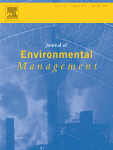Research
A study of compliance with environmental regulations of ISO 14001 certified companies in Korea
This article investigates the impact of ISO 14001 certification on the compliance with environmental regulations by Korean companies. The impact of ISO 14001 certification on the industry was studied through a questionnaire survey and the compliance of environmental regulations were investigated using government-released data. The motivation for an environment management system was a result of the current international situation and the need to maintain fair competition. ISO 14001 certification has been recognized as an essential strategy for industrial competition and to improve company/product recognition.
The certified and non-certified companies’ environmental regulation violation (ERV) rates were 3·5% and 11·6%, respectively, in 1997. In 1998, the ERV rate had an eight-time difference with 1·0% and 8·5% for certified and non-certified companies, respectively. Annual regulation violation rates were reduced from 3·5% in 1997 to 1·0% in 1998 with certified companies and from 11·6% in 1997 to 8·5% in 1998 with their non-certified counterparts, respectively. ISO 14001 certified companies showed more improvment than non-certified companies in regards to environmental performance.
Authors
Dong-Myung Kwon, Min-Seok Seo, Yong-Chil Seo – Korean Standards Association Consulting, Department of Environmental Engineering YIEST, Yonsei University, Maegi-ri Heungup-myun Wonju-si, Kangwon-do, South Korea
Citation

